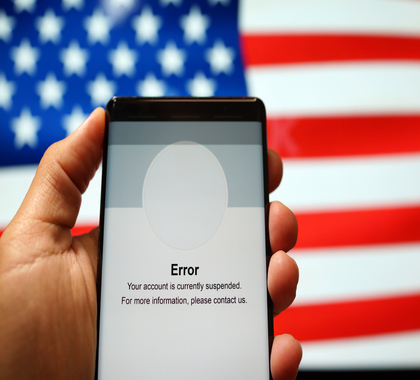Yesterday, the Texas House Judiciary & Civil Jurisprudence Committee heard House Bill 3752, legislation intended to help Texans challenge Big Tech when it comes to their rights to political and religious free speech. HB 3752 would insert statutory damages in actions brought by Texans against social media platforms for online censorship.
The emergence of social media has elevated political dialogue and discourse to a breadth nearly unimaginable a decade ago. When originally developed, these emerging technologies and mediums made the democratization of free speech possible.
However, this mass communication network is managed by a handful of large tech firms that are protected from liability and functionally operate as monopolies. The consolidation of public discourse control amongst these firms has now effectively muted the speech of millions of Americans. Though it has empowered people across the political spectrum, it has also galvanized those who seek to divide, misinform, and manipulate the public.
As of today, nearly 70 percent of the U.S. population (231.5 million Americans) is active on social media, making social media platforms such as Facebook and Twitter the primary channels of communication in the twenty-first century. In addition, U.S. social network advertisement spending hit 56.85 billion in 2022, a substantial increase from 40.34 billion in 2020, according to statista.
These data provide ample evidence that social networks have become much more than mere hosts for expression, memes, and life updates among friends and family. In 2023, social media has become a major sector of the United States economy, influencing corporate successes and failures and even driving agendas.
Along with influencing streams of revenue through advertising, we have seen more clearly than ever that social media platforms can impact and guide social discourse. Combining this phenomenon with the highly divisive political and social climate that has plagued the nation in recent years, America has entered the era of social media censorship.
According to the Pew Research Center, roughly three-quarters of U.S. adults believe it is likely social media sites intentionally censor opinions and viewpoints that do not fall in line with Big Tech’s preferred ideology and political positions. This belief was corroborated with the release of the Twitter Files which showed us that these social media companies were more than happy to get into bed and coordinate with the government to promote certain agendas and narrates.
The policy solution in House Bill 3752 builds from House Bill 20, allowing citizens in Texas to receive statutory damages if they chose to bring cases against social media companies.
House Bill 3752 is a key element to ensuring the stated goals and aims of HB 20, especially because House Bill 20 currently sits in judicial purgatory while the Supreme Court considers its fate. After all, Justice Clarence Thomas has previously indicated that he expects some form of common carriage regulation may be the path forward for social media, much in the way HB 20 law proscribes.
Prior to being appealed to the Supreme Court, the Fifth Circuit Court of Appeals ruled that Big Tech has overstepped its legal bounds as platforms for free speech based upon the Texas law.
The judges of the Fifth Circuit emphatically stated, “We reject the platforms’ attempt to extract a freewheeling censorship right from the Constitution’s free speech guarantee.”
The Fifth Circuit’s ruling made it clear that HB 20 is protected on constitutional grounds. The next logical step following this legal development is House Bill 3752.
Big Tech has long been insulated from liability because they claim to be mere platforms. Yet, these platforms operate in an admitted editorial capacity. House Bill 3752 along with House Bill 20 will lift their liability shield, making them susceptible to lawsuits from Texans who have been unfairly de-platformed.
House Bill 3752 should also spur a state-based and national debate on the role of Big Tech in our civic discourse. Allowing citizens who bring about a case to receive statutory damages, is a tool policymakers need to give the citizens of Texas. This will ensure Texans know that their public debate is sacrosanct. Any action or lack thereof to maintain a vigorous debate will be met with hard questions, and—if necessary—legal repercussions.
As House Bill 3752 continues to move through the legislative process, Texas lawmakers should consider the clear solutions this bill would create. It would protect all Texans from undue censorship by Big Tech ideologues who wield near-total power over the dissemination of information in today’s social media-dominated environment. More speech, not less speech, is always better in a free society.
The following document provides more information about big tech censorship principles.
Six Principles for State Legislators Seeking to Protect Free Speech on Social Media Platforms
James Taylor, president of The Heartland Institute, writes six principles to protect free speech in light of social media censorship. Political free speech in the United States is under attack. Tech media giants who own and control virtually all social media platforms available to Americans are working together to silence groups with whom they do not agree.
_________
Heartland Impact is the new advocacy and outreach arm of the Heartland Institute.
Heartland Impact specializes on providing state lawmakers the policy and advocacy resources to advance free-market policies towards broad-based economic prosperity. This document does not necessarily represent the views of the Heartland Institute.
Heartland Impact can send an expert to your state to testify or brief your caucus; host an event in your state; or send you further information on a topic. Please don’t hesitate to contact us if we can be of assistance! If you have any questions or comments, contact Cameron Sholty, at csholty@heartlandimpact.org or 312/377-4000.


